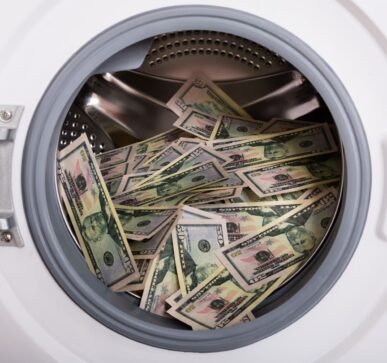Should lawmakers have to follow the same rules as financial institutions?
For the first time, a bipartisan group of U.S. lawmakers has proposed legislation that would require trust companies, lawyers, accountants, notaries, real estate agents, dealers in precious metals and stones, art dealers, casinos and even public relations firms to investigate foreign clients seeking to hide assets in the American financial system.
The proposal cited The Pandora Papers, which published 11.9 million records leaked from 14 firms in the offshore financial services industry. It is the largest such investigation ever conducted and it demonstrates how the wealthy hide their assets.
The Pandora Papers include often embarrassing information on more than 330 politicians and public officials from over 90 countries and territories, including 35 current and former country leaders.
As the report notes, celebrities and public figures sometimes have legitimate reasons for keeping their home addresses secret and hiding assets from predators. They are the exception, not the rule.
The investigation also revealed the US as a key emerging location for trusts, which are typically used to shelter the personal wealth of super-rich individuals rather than multinational corporations.
US States Are Key Spots for Hiding Assets
In fact, as The Guardian reports, wealthy foreign individuals and their families have moved millions of dollars into South Dakota trust funds, which enjoy some of the world’s most powerful legal protections from foreign governments, taxes, creditors and even former spouses. In turn, South Dakota’s aggressive policies promoting these investments have encouraged Florida, Delaware, Texas and Nevada to loosen their trust regulations.
Through U.S. registered financial mechanisms like trust funds, anonymous companies, real estate holdings, art and antiquities, luxury cars and yachts, kleptocratic funds have the protection of U.S. law without transparency.
These opaque funds have been created with the help of “enablers,” including lawyers and accountants, who expedite access to the American economy. Bad actors among these parties also typically aid and abet money laundering and tax evasion,
Hiding money requires a network
“When you are that rich, and you are looking for a creative way to hide money, you cannot do it alone,” said Lakshmi Kumar, policy director at Global Financial Integrity, a Washington-based research group on illicit financial flows and other corruption. “You need a network of professionals to help you. These people are often people who are meant to safeguard the financial system.”
Under the new legislation, generational trusts and other similar formats could still be created, but they would no longer be secret. They’d have to be reported to the IRS and the Department of the Treasury, as well as to the states’ departments of taxation.
Bill aims to close loopholes for crooks
Now, the proposed legislation would make Non-Financial Businesses and Professions (NFBP) subject to the same level of anti-money laundering (AML) responsibilities as Financial Institutions.
Banks have to know their customer (KYC), and they have to check to see whether their customer is on a blacklist, like drug traffickers and organizations that finance terrorists. That ensures that the bank doesn’t finance illegal deeds.
The bipartisan Establishing New Authorities for Business Laundering and Enabling Risks to Security (Enablers) Act, would also update the 51-year-old Bank Secrecy Act, which requires banks to investigate their clients and the source of their wealth. In effect, the new provisions would expand FinCen’s 2020 Anti-Money Laundering Act.
A loophole had excluded trust companies, accountants, lawyers and other professionals. It also would require the treasury department to create new due-diligence rules for American middlemen who facilitate the flow of foreign assets into the United States.
Should NFBPs institute Corporate Governance?
Should non-financial businesses and professions begin developing and implementing internal Corporate Governance programs that resemble those of financial institutions?
Representative Tom Malinowski of New Jersey, one of the sponsors of the bill, put this statement on his Congressional website.
“If we make banks report dirty money but allow law, real estate, and accounting firms to look the other way, that creates a loophole that crooks and kleptocrats can sail a yacht through. Our bill closes that loophole and encourages the administration to move in the same direction.”
If passed, the U.S. Treasury Department would have until December 2023 to create anti-money laundering rules closing the loopholes. Regulations would kick in at designated financial thresholds. ©





